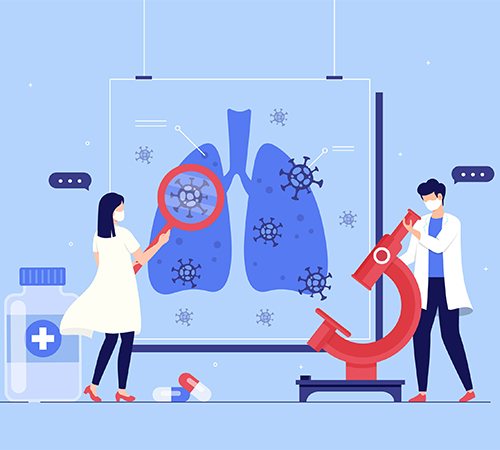Lung Cancer Myths Debunked: Sorting Facts from Fiction

Lung cancer is a formidable foe, and unfortunately, misinformation surrounding the disease often leads to misconceptions. It's crucial to dispel myths and focus on the facts to better understand and combat this prevalent form of cancer.
Myth 1: Only Smokers Get Lung Cancer
While it's true that smoking is a significant risk factor for lung cancer, non-smokers can also develop the disease. Radon exposure, secondhand smoke, genetic factors, and environmental pollutants contribute to lung cancer cases in individuals who have never smoked.
Myth 2: Lung Cancer Only Affects Older Adults
While the risk of lung cancer increases with age, it can affect individuals of any age. Younger people, non-smokers, and even those with a healthy lifestyle can be diagnosed with lung cancer. Early detection and awareness are crucial for everyone, regardless of age.
Myth 3: Lung Cancer is Always Terminal
Contrary to the belief that a lung cancer diagnosis is a death sentence, advancements in medical research and treatment options have significantly improved outcomes. Early detection, personalized treatment plans, and ongoing research contribute to increased survival rates and better quality of life for many patients.
Myth 4: Lung Cancer is Always Symptomatic
Lung cancer can develop without causing noticeable symptoms in its early stages. This silent progression often leads to late-stage diagnoses. Regular screenings and awareness of potential risk factors are essential for detecting lung cancer in its early, more treatable phases.
Myth 5: If You Have No Family History, You're Safe
While a family history of lung cancer increases the risk, many cases occur in individuals with no such background. Environmental factors, lifestyle choices, and genetic mutations all play roles in the development of lung cancer.
Understanding the realities of lung cancer is crucial for fostering awareness, promoting early detection, and challenging stigmas associated with the disease. By dispelling these myths, we empower individuals to make informed decisions about their lung health and encourage a supportive environment for those affected by this challenging condition.
Feel free to share this blog with friends and family – after all, the more we know, the stronger we become.